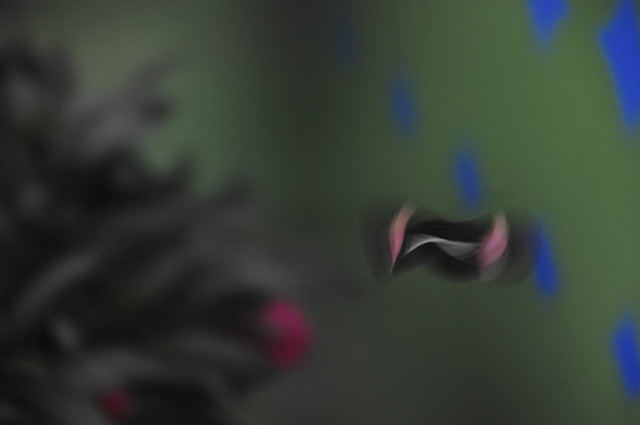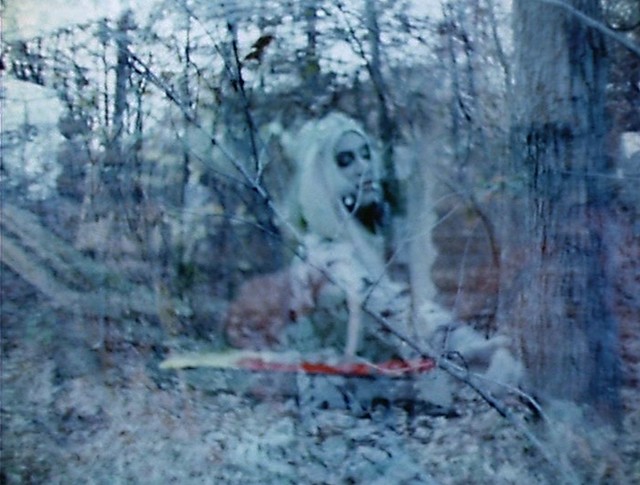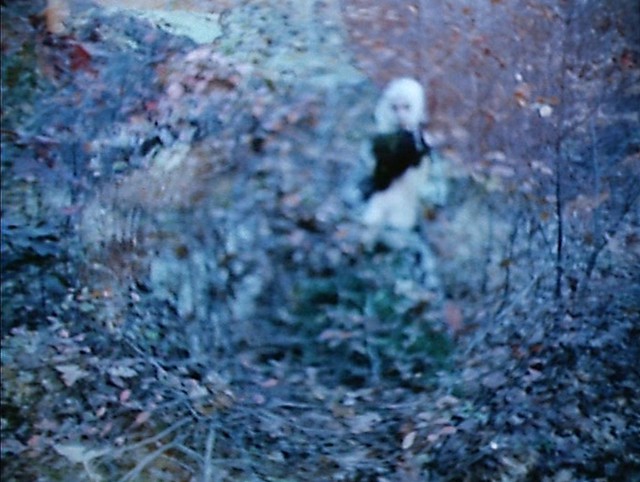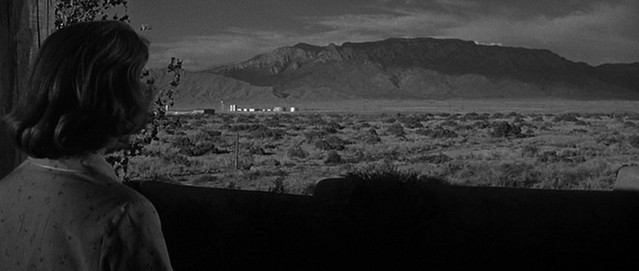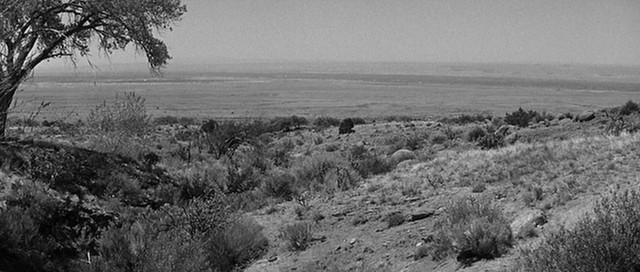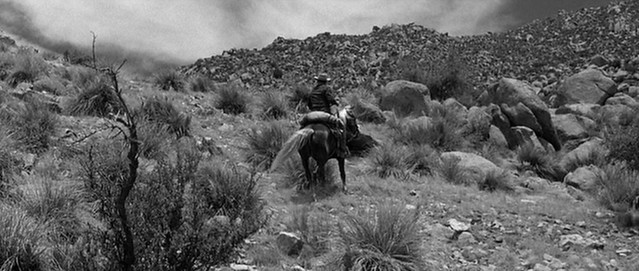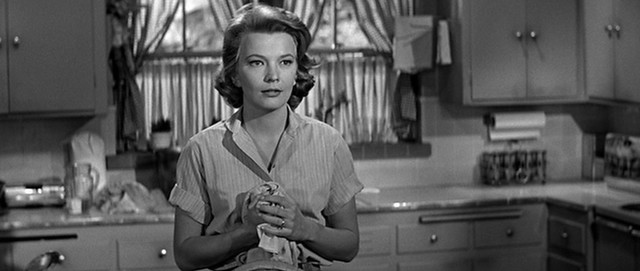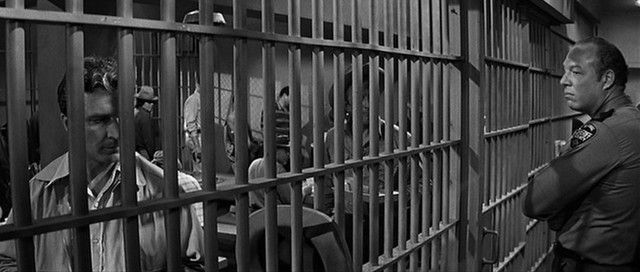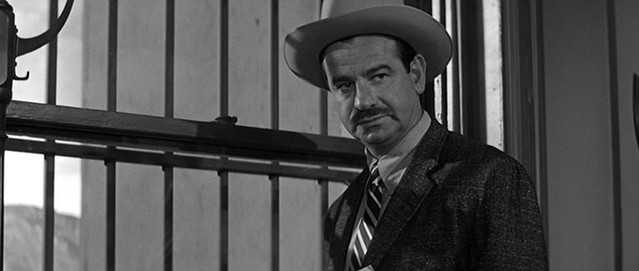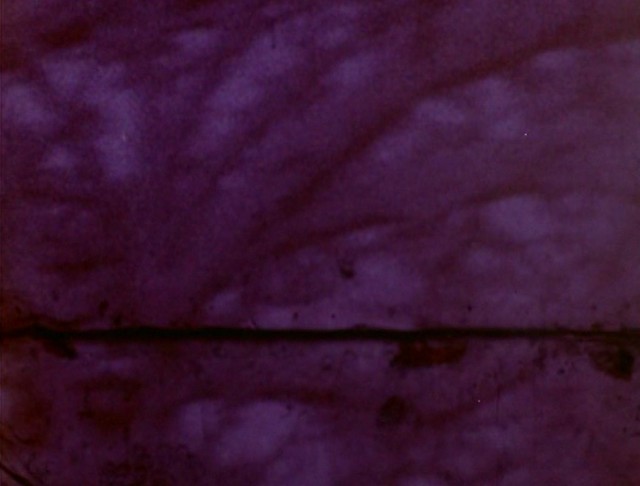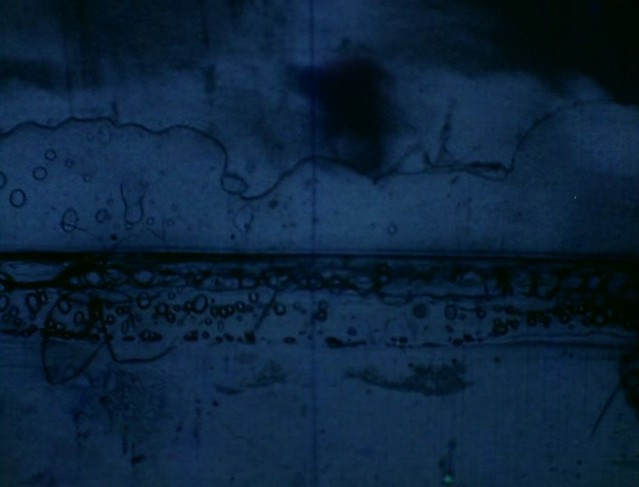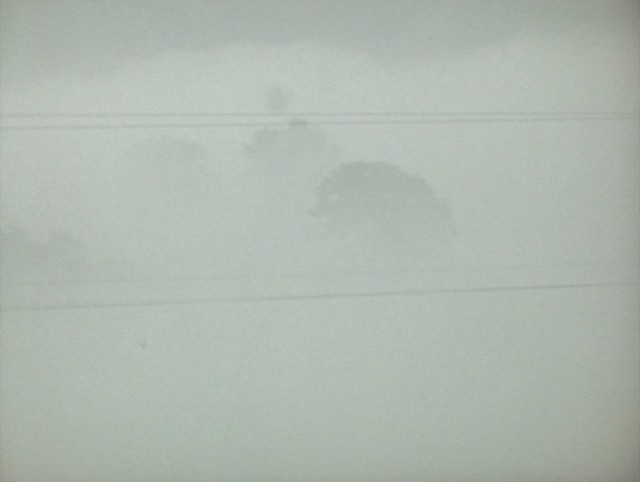
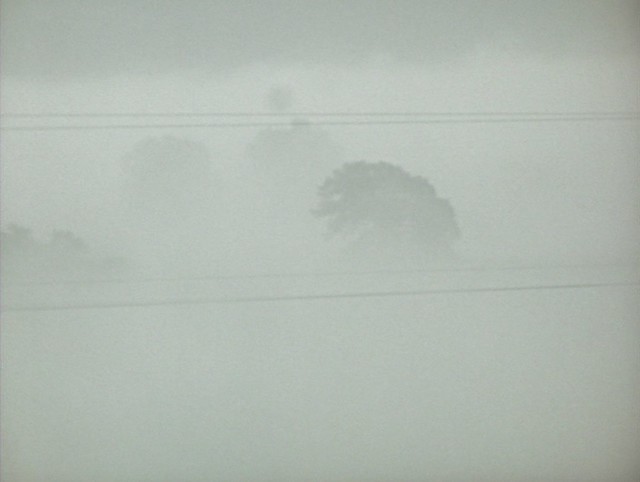
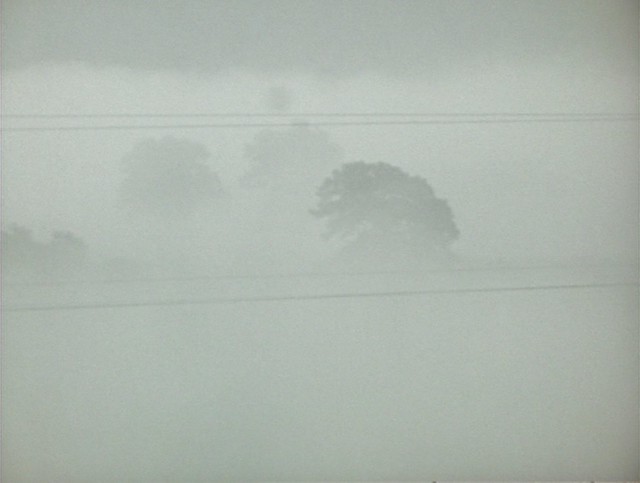


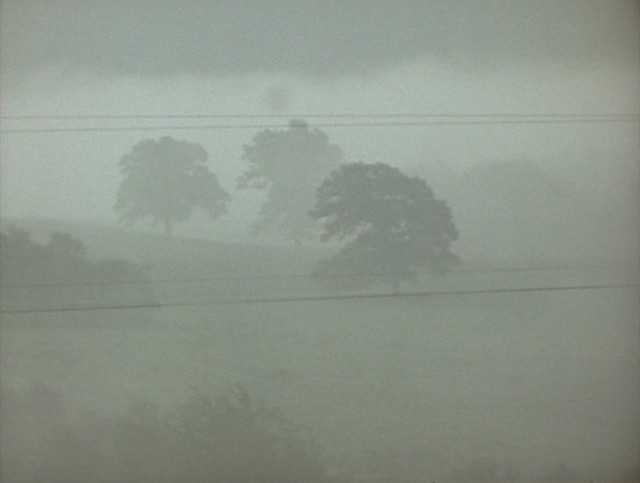



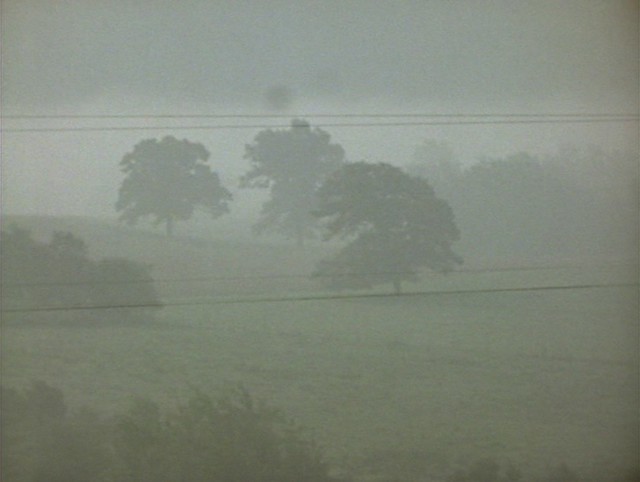

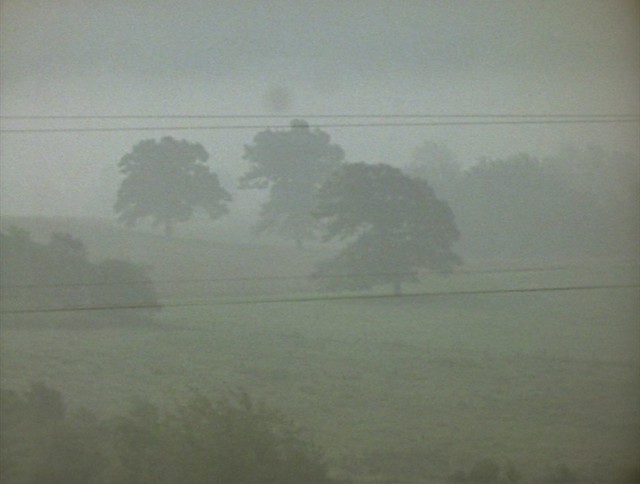
a still every 60 seconds from
larry gottheim's
fog line - 1970,
including first and last
the image of the railroad on the shore of the pond figures an ambiguity at the heart of
walden. man-made power, the machine with its fire, smoke, and thunder, is juxtaposed to the waters of walden, remarkable for their depth and purity and a matchless, indescribable color - now light blue, now green, almost always pellucid. the iron horse moves across the surface of the earth; the pond invites the eye below the surface. the contrast embodies both the hope and the fear aroused by the impending climax of america's encounter with wild nature.
leo marx,
the machine in the garden from chapter 1 of
scott macdonald -
the garden in the machine - university of california press - 2001
(also see his
a critical cinema: interviews with independent filmmakers - university of california press - 1988, volume 1, larry gottheim interview)
the cinema of attractions directly solicits spectators attention, inciting visual curiosity, and supplying pleasure through an exciting spectacle - a unique event, whether fictional or documentary, that is of interest in itself. the attraction to be displayed may also be of cinematic nature, such as the early close-ups just described, or trick films in which a cinematic manipulation (slow motion, reverse motion, substitution, multiple exposure) provides the film's novelty. it is the direct address of the audience, in which an attraction is offered to the spectator by a cinema showman, that defines this approach to film making. theatrical display dominates over narrative absorption, emphasizing the direct stimulation of shock or surprise at the expense of unfolding a story or creating a diegetic universe. the cinema of attractions expends little energy creating characters with psychological motivations or individual personalities. making use of both fictional and non-fictional attractions, its energy moves outward towards an acknowledged spectator rather than inward towards the character-based situations essential to classical narrative.
tom gunning -
the cinema of attractions: early film, its spectator and the avant-garde - 1981
found in
early cinema: space frame narrative - bfi publishing - 1990
(pellucid - admitting the passage of light; transparent or translucent
reflecting light evenly from all surfaces)
